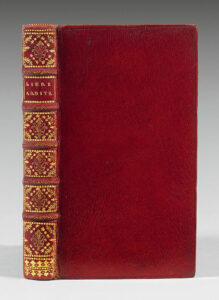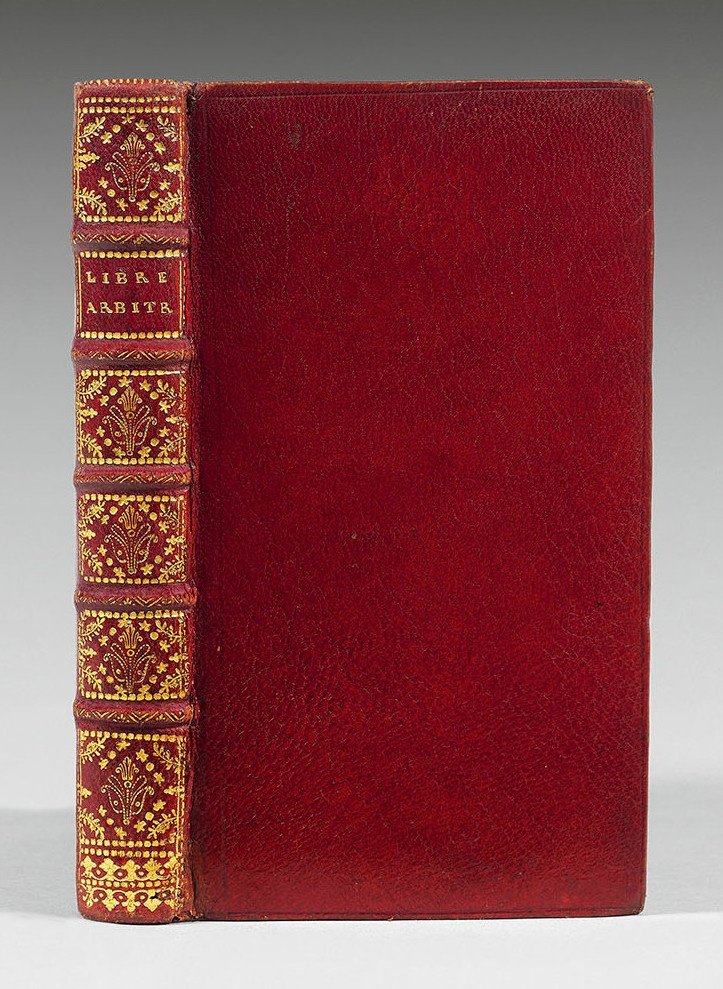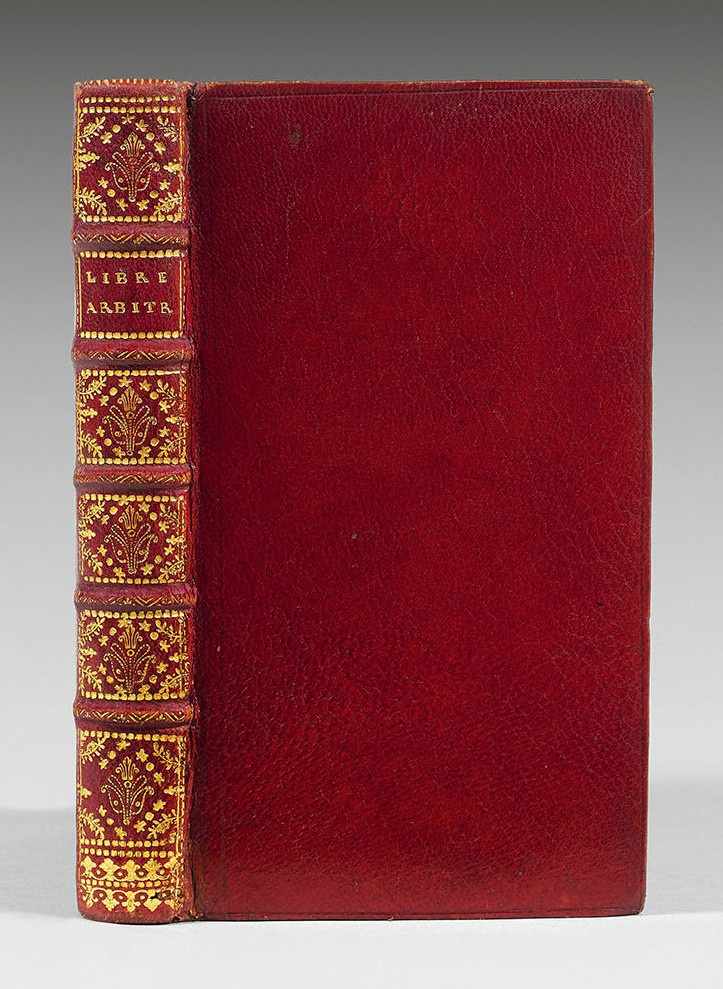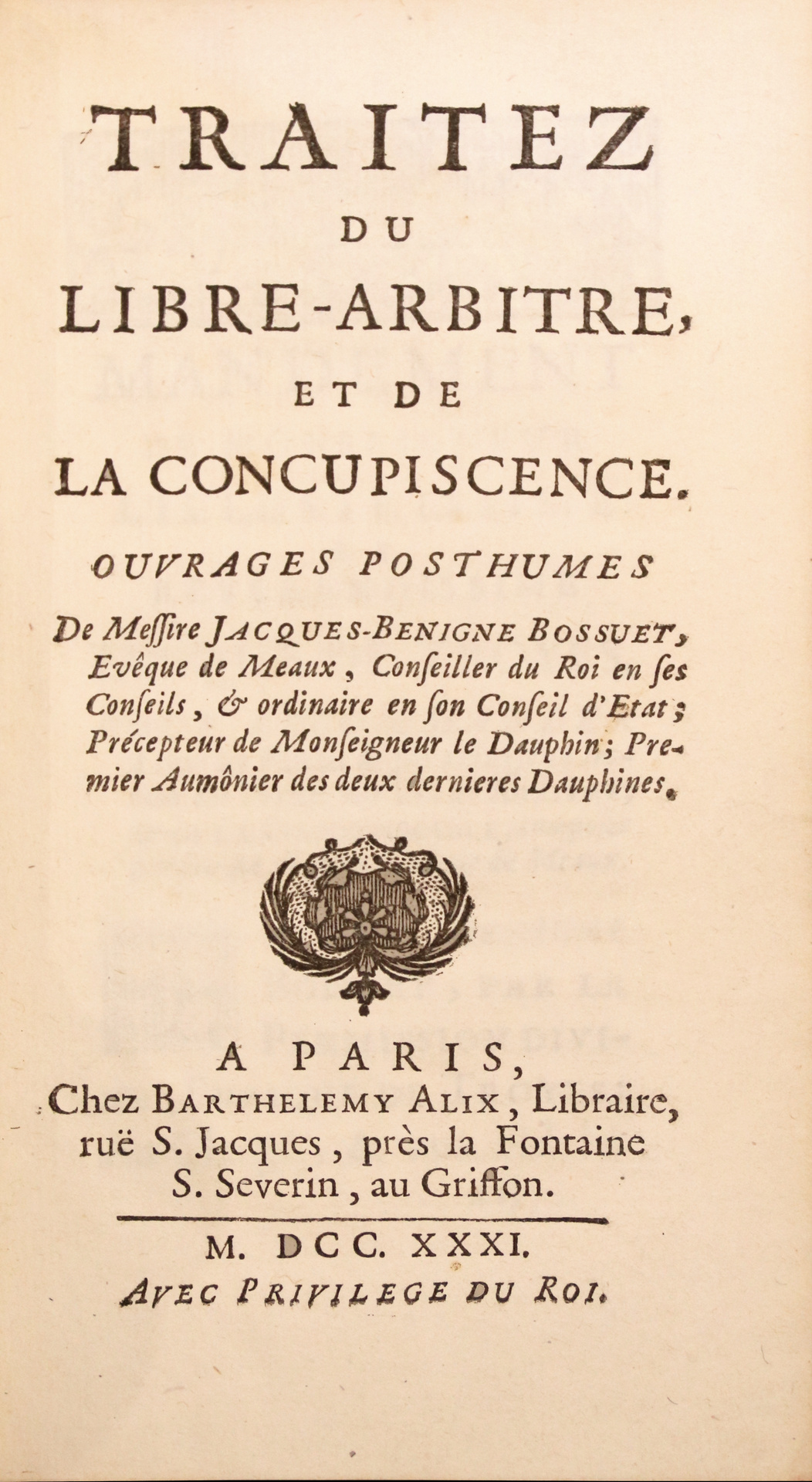Paris, Barthélémy Alix, 1731.
2 parts in 1 volume 12mo [168 x 94 mm] with 26 pp., (3) ll. of table, 155 pp., (1) bl.l., (1) title, 218 pp., (6) ll. Bound in contemporary red morocco, blind-stamped fillet around the covers, ribbed spine richly decorated, inner gilt roll-stamp, gilt over marbled edges. Contemporary binding.
First edition of two major treatises by Bossuet.
Bibliothèque de Backer, n°998 ; Bulletin Morgand et Fatout, n°129 ; Rahir, La Bibliothèque de l’amateur, 336 ; Tchemerzine, I, 905 ; Brunet, I, 1139.
Bossuet was appointed tutor of the Dauphin in 1670 and the Traité du libre-arbitre is one of the works composed for the education of the future sovereign.
The subject in question deals with the ‘mean to grant our Freedom with the certainty of God’s orders’. The question of knowing whether there are human choices regardless of the sovereign grace of God had just divided Catholics in France into two groups: the Jesuits supported by the superior clergy as well as the King, and the Jansenists from Port Royal, in the minority but united around brilliant theological and intellectual authorities such as Arnault and Pascal. And yet, the years during which Bossuet was the tutor of the Dauphin are the ones which coincide with the Peace with the French Church (1668-1678). Besides, Jansenists were among the few people who did not clash with Bossuet, even if his situation at the Court did not allow him to show off the interest he had for the theology from Port-Royal.
Consequently the richness of the Traité du libre-arbitre mainly lies in the fragile but brave synthesis (Bossuet addresses to the future King of France after all), of two doctrines which are though fiercely opposed. This unknown text gives a fair insight into a period of official tolerance which is about to be defeated by the hardening of freedoms with regard to religion.
As for the Traité de la concupiscence, composed towards 1693, it reflects the subsequent period, troubled times during which doctrinal positions are much more rigid and customs a lot freer. Bishop of Meaux since 1681, listened by the Court which comes from Paris and from Versailles to attend his preaches, uncontested doctor from the Church of France, Bossuet attacks libertines, socialites, he vituperates against the lie of their soul and the vanity of their life. This text was supposed to be entitled Considérations sur les paroles de Saint Jean: ‘N’aimez pas le monde’ but Bossuet’s nephew, the Bishop of Troyes who wrote the preface of this edition, preferred the other more severe title.
The tie with Versailles remained until Bossuet’s declining years. He occupied a central position within the court of France; he was the King’s adviser during his councils and ordinary adviser during his State Councils.
Superb copy particularly fresh and wide-margined (168 mm high), bound in contemporary red morocco of a rare quality.
Bossuet’s first editions preserved in contemporary morocco bindings have always been very sought-after by bibliophiles.




